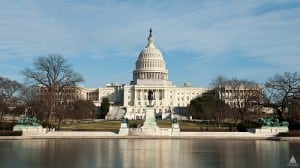
In a 266-167 vote, House on Wednesday evening approved the Bipartisan Budget Deal, which raises spending limits imposed by the Budget Control Act of 2011 for two years as well as the debt ceiling.Democrats were united in their show of support for the bill, with no members voting against it, while Republicans were split with 79 for and 167 against the bill.For defense, the bill—H.R. 1314—would allow the military to keep most of the funding requested in the president’s $612…











